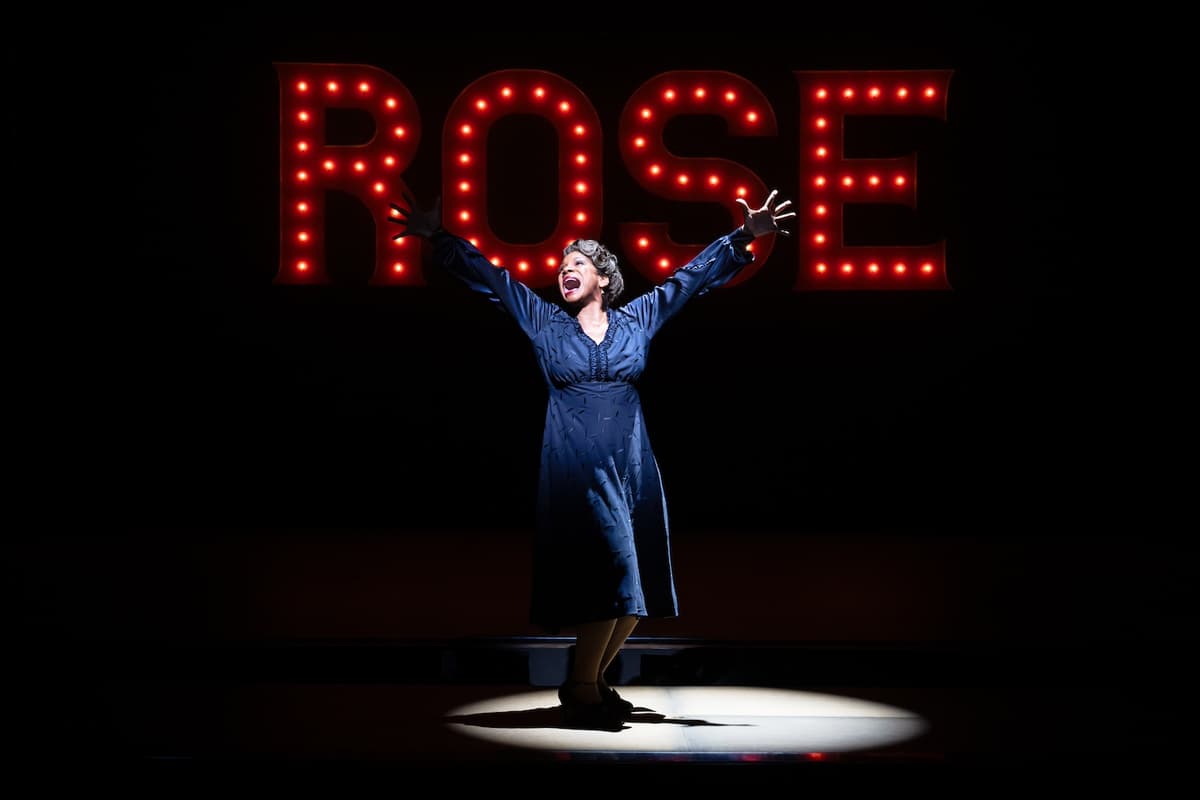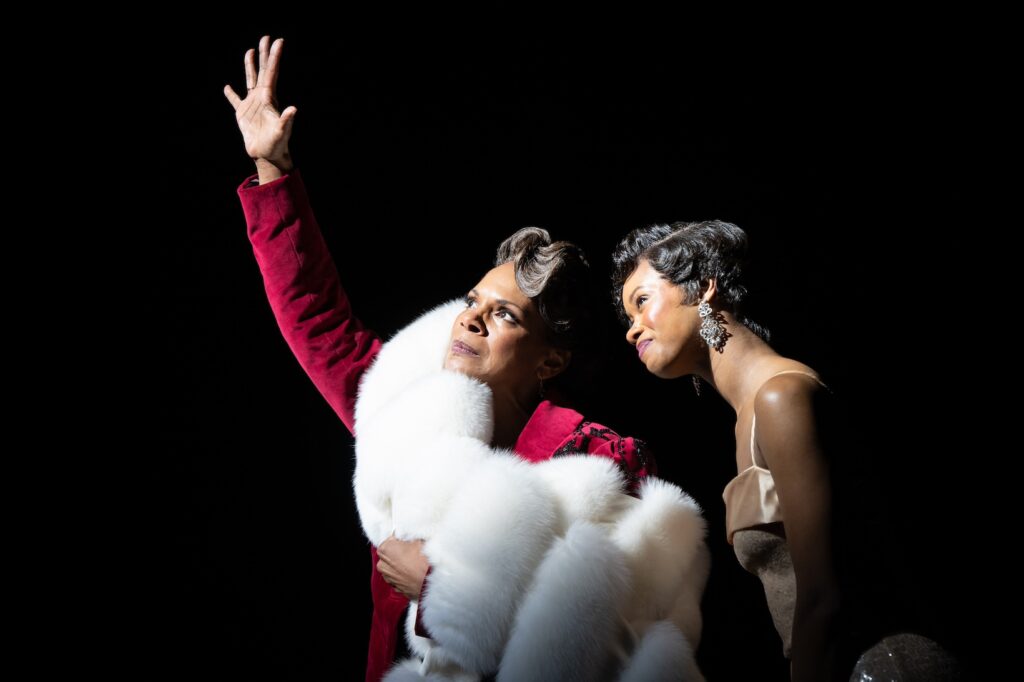Audra McDonald Delivers a Show-Stopping Performance as Rose in New Revival of ‘Gypsy’
The triumph of this production is that its star and her equally venerated director, George C. Wolfe, turn potential liabilities into assets.

Would Audra McDonald be able to have a convincing nervous breakdown onstage? It’s a question that had gnawed at me ever since it was announced that Ms. McDonald, winner of six Tonys and the most celebrated leading lady of her generation in musical theater, would tackle the role of Rose, mother of all stage mothers, in a new revival of “Gypsy.”
The answer, I’m happy to report, is yes: Ms. McDonald delivered “Rose’s Turn,” the magnificent, cataclysmic tour de force that is this beloved musical’s final number — in which the character, abandoned by all those she has loved and oppressed, finally comes to terms with her own gargantuan neediness — with a gale force that stopped the show cold, earning the first of two rapturous standing ovations.
I had been skeptical because, for me, Ms. McDonald’s performances have often been distinguished by a meticulousness and transparent eagerness that can make them feel, well, performative. Whether playing a spunky ingénue or Billie Holiday or, in her most recent Broadway outing, the play “Ohio State Murders,” an accomplished writer with a history of trauma, the actress has struck me as an elegant Juilliard graduate — which she is — digging diligently into another person’s story, as opposed to truly inhabiting it.
I also had a hard time imagining Ms. McDonald singing as Rose, a part that has been a vehicle for brassy belters from Ethel Merman to Patti LuPone. Ms. McDonald’s defining characteristic as a vocalist has always been her impeccable control and refinement; her heavy soprano, with its almost operatic vibrato, may not be as beautiful in tone as some of her peers’ voices, but it’s as polished as your grandmother’s best silverware.
The triumph of this “Gypsy,” however, is that its star and her equally venerated director, George C. Wolfe, manage to turn these potential liabilities into assets. For Rose, life is showbusiness — not only because she can’t imagine devoting herself to any other pursuit, but because she is always performing in a sense, whether trying to convince her father to lend her money to help finance her young daughters’ careers or cajoling (with varying degrees of aggression) show-biz execs who could hire the girls.

That’s not to say that, in these instances, Rose is putting on an act: Like many stage mothers, she has convinced herself that she’s doing the right thing for her children — June, a natural ham, and the far more reluctant Louise — and Ms. McDonald conveys this with palpable heart and grit; even her singing, while predictably pitch-perfect, can carry an air of desperation.
Mr. Wolfe, whose many Broadway credits range from hit musicals to celebrated plays, including the original productions of such contemporary American classics such as “Angels in America” and “Topdog/Underdog,” supports Ms. McDonald’s Rose with a staging that reflects the scope of her ambition, and its connection to our history as a nation of dreamers and seekers. Santo Loquasto’s set design and Toni Leslie James’s costumes reinforce the aspirational tone, whether the setting is a garishly decorated Chinese restaurant or a flashy, seedy burlesque venue.
The director has also culled fine performances from other actors, particularly another musical theater favorite, Danny Burstein, cast here as Herbie, the agent turned candy salesman lured back to his old job by Rose, who becomes his partner in love as well. While Mr. Burstein has a lovely, easy chemistry with Ms. McDonald, his beautifully nuanced portrait also flickers with the simmering indignation and fundamental decency that ultimately dooms their characters’ relationship.
Jordan Tyson brings similar layers to the teenaged June, showing us the frustration that festers under her cultivated spunk, though I was, disappointingly, less impressed by Joy Woods, who plays Louise as a budding woman. Ms. Woods has the right coltish beauty for the part, and her knockout turn as a glamorous, jaded showgirl in an off-Broadway revival of “I Can Get It For You Wholesale” last year made me optimistic about her prospects in this role.
Granted, Louise is a trickier ingénue than most, demanding a credible evolution from an awkward, lovelorn, painfully shy adolescent into, well, a glamorous, jaded showgirl. But Ms. Woods’s cool, strangely tentative take — evident from her singing, which is more subdued than it needs to be, to her final confrontation with Ms. McDonald’s Rose — doesn’t fully capture any of these qualities, other than the glamor.
Perhaps Ms. Woods will grow into her plum role, just as Louise grows into her less fortunate one. Regardless, as the ads promoting this revival have suggested, this is Audra’s “Gypsy,” and one well worth catching.

